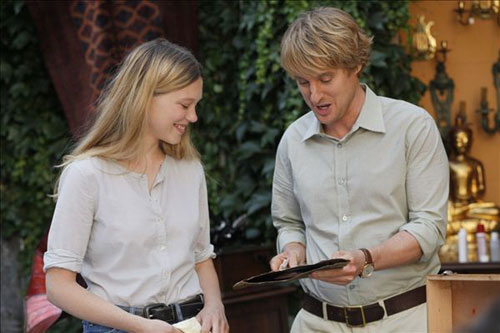|



Reviews
You see, Paris is a cast member in this film. The sun rises, people hustle and bustle through Paris, they sip coffee in cafes, the lights go on at dusk, and the city sleeps. Forget all the travel brochures you could see – the opening segment serves as a love letter to Paris that both makes you want to go and better understand the spell that it is about to be cast on the lead character of Allen's most purely enjoyable film in years.
...
It's easy to make a love letter to a beautiful city, right? Get a cameraman as ridiculously talented as Khondji and set him loose on one of the most cinematically captivating cities in history. But the genius of Allen's film is that it digs deeper than the surface. It is not just about a city but about how that city can inspire creativity and passion. It's inspiring to see one of history's best filmmakers delivering again.
By Brian Tallerico, from HollywoodChicago.com
"Midnight in Paris" finds Allen in a larky, slightly tart and altogether bountiful mood, giving filmgoers a movie that, while unabashedly funny and playful, provides a profiterole or two for thought.
By Ann Hornaday, from The Washington Post
The definitive poem in English on the subject of cultural nostalgia may be a short verse by Robert Browning called "Memorabilia." It begins with a gasp of astonishment —"Ah, did you once see Shelley plain?" — and ends with a shrug: "Well I forget the rest." Isn't that always how it goes? The past seems so much more vivid, more substantial, than the present, and then it evaporates with the cold touch of reality. The good old days are so alluring because we were not around, however much we wish we were.
"Midnight in Paris," Woody Allen's charming new film, imagines what would happen if that wish came true. It is marvelously romantic, even though — or precisely because — it acknowledges the disappointment that shadows every genuine expression of romanticism. The film has the inspired silliness of some of Mr. Allen's classic comic sketches (most obviously, "A Twenties Memory," in which the narrator's nose is repeatedly broken by Ernest Hemingway), spiked with the rueful fatalism that has characterized so much of his later work.
By A. O. Scott, from The New York Times
|

